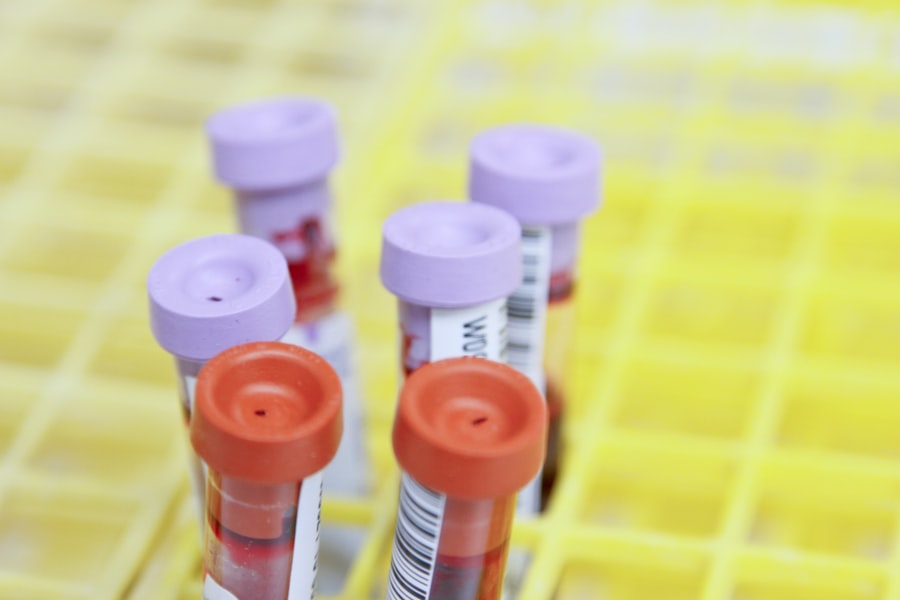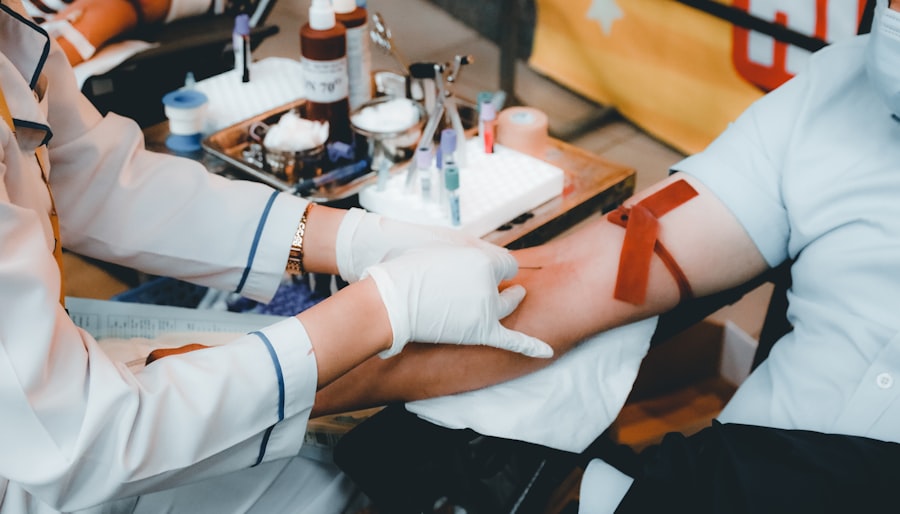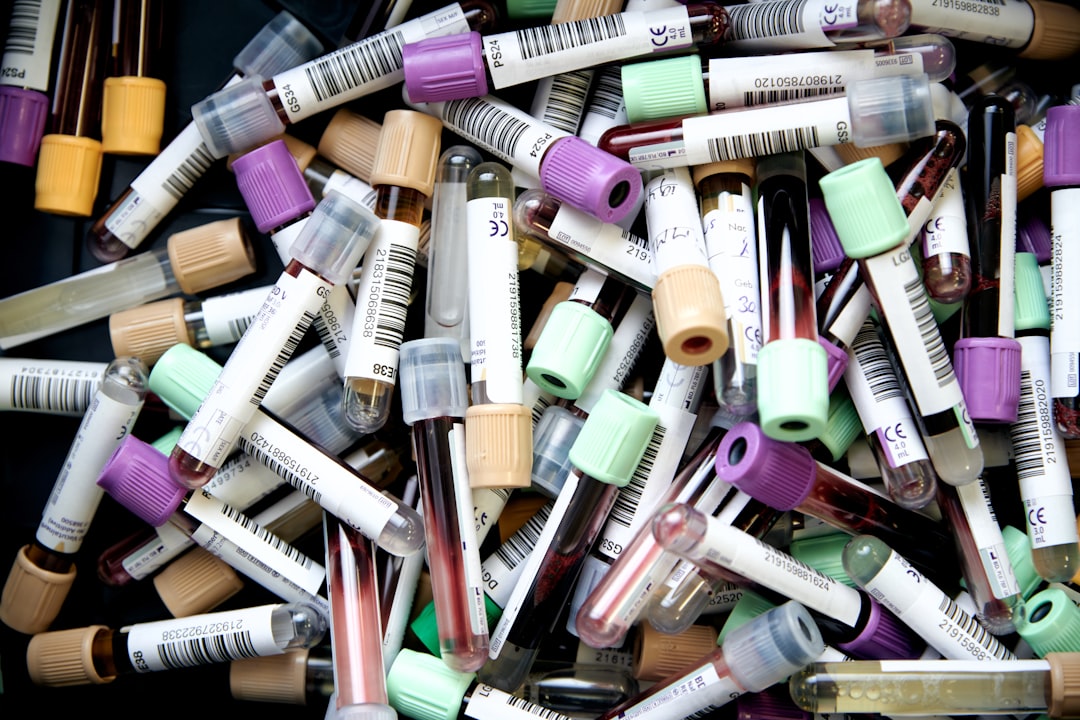Phlebotomists play a crucial role in the healthcare system, serving as the frontline professionals responsible for drawing blood from patients for various medical purposes. Their work is not merely about extracting blood; it encompasses a range of responsibilities that require a blend of technical skills, interpersonal communication, and a deep understanding of human anatomy.
This includes understanding the anatomy of veins, knowing how to locate them accurately, and being familiar with the different types of blood collection equipment, such as needles, vacutainers, and syringes. In addition to their technical skills, phlebotomists must also possess strong communication abilities. They often interact with patients who may be anxious or fearful about having their blood drawn.
A phlebotomist’s ability to reassure and comfort patients can significantly impact their experience and willingness to cooperate during the procedure. Furthermore, phlebotomists are responsible for labeling and handling blood samples correctly to prevent contamination or misidentification, which could lead to serious medical errors. Their role is integral not only in diagnostics but also in ensuring that the healthcare system operates smoothly and efficiently.
Key Takeaways
- Phlebotomists play a crucial role in the healthcare system by collecting blood samples for testing and transfusions.
- Local hospitals and clinics are common employers of phlebotomists, where they work alongside medical staff to collect and label blood samples.
- Blood donation centers rely on phlebotomists to ensure safe and efficient blood collection from donors.
- Research laboratories and diagnostic centers employ phlebotomists to collect and handle blood samples for medical testing and analysis.
- Phlebotomists also find employment in home health agencies and nursing homes, where they may collect blood samples from patients in their homes.
Local Hospitals and Clinics
Local hospitals and clinics are among the primary employers of phlebotomists, providing a stable work environment with a diverse patient population. In these settings, phlebotomists are often part of a larger healthcare team that includes doctors, nurses, and laboratory technicians. Their responsibilities may vary depending on the size and type of facility.
In larger hospitals, phlebotomists may work in specialized departments, such as pediatrics or oncology, where they must adapt their techniques to accommodate different patient needs. For instance, drawing blood from children requires a gentle approach and specialized techniques to minimize discomfort. In smaller clinics, phlebotomists may have a broader range of duties that extend beyond blood collection.
They might assist with patient intake, perform basic lab tests, or help manage medical records. This variety can make the work more engaging and provide opportunities for professional growth. Additionally, working in local hospitals and clinics often allows phlebotomists to build long-term relationships with patients, fostering a sense of community and trust.
The dynamic nature of these environments means that phlebotomists must be adaptable and ready to handle unexpected situations, such as dealing with difficult patients or managing high volumes of blood draws during peak hours.
Blood Donation Centers

Blood donation centers represent another vital area where phlebotomists are employed. These facilities focus on collecting blood donations from healthy individuals to ensure an adequate supply for hospitals and emergency services. Phlebotomists in blood donation centers play a key role in the donor experience, guiding individuals through the donation process while ensuring their safety and comfort.
This involves explaining the procedure, answering questions, and monitoring donors for any adverse reactions during or after the donation. The work at blood donation centers can be particularly rewarding, as phlebotomists contribute directly to saving lives. They often engage with donors who are motivated by altruism, which can create a positive atmosphere within the center.
Additionally, phlebotomists must be knowledgeable about the various eligibility criteria for donors, including health history and lifestyle factors that may affect their ability to donate blood. This requires ongoing education and training to stay current with guidelines set by organizations such as the American Red Cross or local health authorities. The experience gained in this setting can also enhance a phlebotomist’s skills in patient interaction and technical proficiency.
Research Laboratories and Diagnostic Centers
| Metrics | 2018 | 2019 | 2020 |
|---|---|---|---|
| Number of Laboratories | 5,000 | 5,200 | 5,500 |
| Diagnostic Tests Conducted | 10,000,000 | 11,000,000 | 12,000,000 |
| Revenue (in million) | 50 | 55 | 60 |
Phlebotomists also find employment opportunities in research laboratories and diagnostic centers, where their skills are essential for collecting blood samples used in various studies and tests. In research settings, phlebotomists may work alongside scientists and researchers to gather samples for clinical trials or epidemiological studies. This role often requires a higher level of precision and attention to detail, as the integrity of the samples is critical for the validity of research findings.
In diagnostic centers, phlebotomists are responsible for collecting blood samples that will be analyzed for various medical conditions. They must be familiar with different testing protocols and understand how specific tests require particular handling or storage conditions. For example, some tests may necessitate that samples be processed immediately after collection, while others can be stored for longer periods.
The ability to work efficiently under pressure is vital in these environments, as timely results can significantly impact patient care decisions. Moreover, phlebotomists in these settings often collaborate closely with laboratory technicians to ensure that samples are correctly labeled and transported to the appropriate testing areas.
Home Health Agencies and Nursing Homes
Home health agencies and nursing homes represent another important sector for phlebotomists, particularly as the demand for in-home healthcare services continues to rise. In these settings, phlebotomists provide essential services to patients who may have mobility issues or chronic illnesses that make it difficult for them to visit traditional healthcare facilities. This role requires not only technical skills but also a compassionate approach to patient care, as phlebotomists often work with elderly or vulnerable individuals.
In home health settings, phlebotomists must be adept at creating a comfortable environment for patients who may feel anxious about having their blood drawn in their own homes. They need to be resourceful and capable of managing various challenges that can arise in non-clinical environments, such as limited space or lack of equipment. Additionally, they must maintain strict adherence to safety protocols to prevent contamination or infection during blood collection.
Working in nursing homes can also involve building rapport with staff members and families, as effective communication is key to ensuring that patients receive comprehensive care.
Mobile Phlebotomy Services

The rise of mobile phlebotomy services has transformed how blood collection is conducted, offering convenience for patients who may struggle to visit traditional healthcare facilities. Mobile phlebotomy involves trained professionals traveling to patients’ homes or workplaces to perform blood draws. This service is particularly beneficial for individuals with chronic illnesses, busy schedules, or those living in remote areas where access to healthcare is limited.
Phlebotomists working in mobile services must possess excellent time management skills and be prepared for a variety of environments. They often carry portable equipment and must ensure that all necessary supplies are available for each appointment. Additionally, they need to be proficient in establishing rapport quickly since they may only have a short time with each patient.
The flexibility of mobile phlebotomy services allows phlebotomists to reach a broader patient base while providing essential healthcare services tailored to individual needs.
Job Boards and Online Job Search Engines
For aspiring phlebotomists seeking employment opportunities, job boards and online job search engines serve as invaluable resources. Websites such as Indeed, Glassdoor, and LinkedIn offer extensive listings of available positions across various sectors within healthcare. These platforms allow job seekers to filter searches based on location, experience level, and specific job requirements, making it easier to find suitable openings.
Networking features on these sites enable job seekers to connect with industry professionals who can offer insights into potential employers or job openings that may not be publicly advertised. Furthermore, some job boards specialize in healthcare roles exclusively, providing targeted resources for those looking specifically for positions in phlebotomy or related fields.
Networking and Professional Organizations
Networking plays a pivotal role in advancing a phlebotomist’s career and finding job opportunities within the field. Engaging with professional organizations such as the National Phlebotomy Association (NPA) or the American Society for Clinical Pathology (ASCP) can provide valuable connections and resources for both new graduates and seasoned professionals alike. These organizations often host conferences, workshops, and seminars that allow members to learn about the latest advancements in phlebotomy practices while meeting peers from across the country.
Additionally, local networking events can help phlebotomists build relationships with potential employers or mentors who can guide them through their career paths. Participating in community health fairs or volunteering at local clinics can also enhance visibility within the field while providing opportunities to showcase skills and dedication to patient care. By actively engaging in networking efforts and joining professional organizations, phlebotomists can stay informed about industry trends while expanding their professional horizons through collaboration and shared knowledge within the community.
If you are interested in exploring the intersection of philosophy and healthcare, you may want to read this article on post-modern philosophy, hermeneutics, critical theory, and deconstruction. Understanding different philosophical perspectives can enhance your critical thinking skills and help you navigate complex ethical dilemmas in the field of phlebotomy. Additionally, this article on Gandhi and Ambedkar’s Indological approaches offers insights into how historical figures have shaped our understanding of India and its cultural heritage, which can be valuable knowledge for healthcare professionals working in diverse communities.
FAQs
What is phlebotomy?
Phlebotomy is the practice of drawing blood from patients for medical testing, transfusions, donations, or research.
What are phlebotomy jobs?
Phlebotomy jobs involve the collection and handling of blood specimens for medical testing and research purposes. Phlebotomists may work in hospitals, clinics, blood banks, or research laboratories.
What are the requirements for phlebotomy jobs?
To work as a phlebotomist, individuals typically need to complete a phlebotomy training program and obtain certification. Some states may also require phlebotomists to be licensed.
What are the duties of a phlebotomist?
Phlebotomists are responsible for drawing blood from patients, labeling and storing blood samples, and ensuring the samples are properly transported to the laboratory for testing.
Where can I find phlebotomy jobs near me?
Phlebotomy jobs can be found in hospitals, clinics, blood banks, and research laboratories. Job seekers can search for openings on job search websites, hospital websites, and through staffing agencies.
What is the salary range for phlebotomy jobs?
The salary for phlebotomy jobs can vary depending on location, experience, and employer. According to the Bureau of Labor Statistics, the median annual wage for phlebotomists was $35,510 in May 2020.























+ There are no comments
Add yours